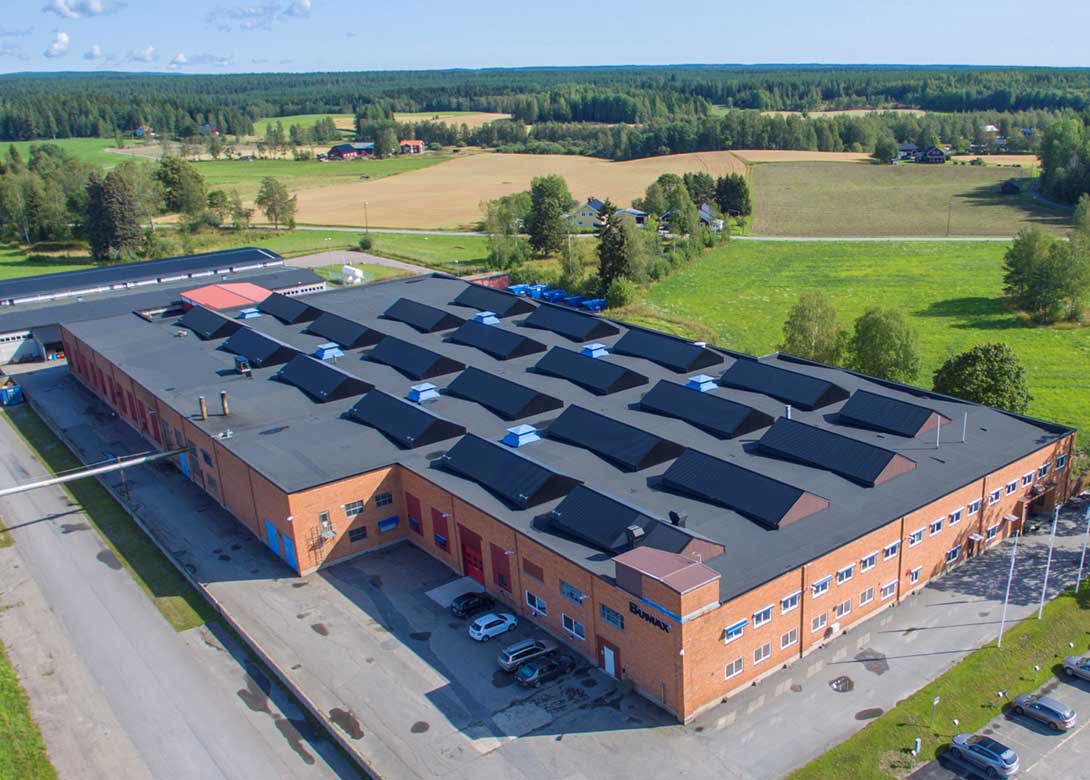
BUMAX has reduced the energy it uses for heating and electricity at its Åshammar facility by over 50% since 2011.
Patrik Lundström Törnquist, managing director of BUMAX, comments: “This is an impressive feat for a manufacturing company operating in a large facility in the Nordics.We commenced our sustainability program already in 2011 and have seen fantastic results. By using less energy for heating and electricity, we are not only reducing our carbon footprint, we also realised financial savings that increases our competitiveness.”By reducing the need for heating, BUMAX has reduced its 12,000m2 facility’s carbon emissions from heating by 62% since 2011.
Key investments to reducing heating demand have included:
- Upgrading the roof insulation.
- Fitting energy efficient triple glazed windows and insulated skylights.
- Installing better insulated large industrial doors.
All these measures have provided a more equal indoor temperature at the facility and a better working environment.
Other measures to reduce the heating demand include better controls for the boiler heating system; optimisation of the ventilation system; reducing the temperature in the warehouse from 15ºC to 10ºC; as well as the installation of a heat recovery ventilation unit.
100% renewable electricity
The switch to renewable electricity is the first phase of a project to replace the facility’s entire heating system with a more sustainable solution. BUMAX sources 100% of its electricity from renewable hydroelectric power plants. In 2019, the company used approximately 1,249MWh of renewable electricity.
Continued measures to reduce energy use not only decrease BUMAX’s environmental impact and carbon emissions – they also significantly reduce production costs.
Various energy efficiency measures were identified following two energy assessments. They have been essential in recognising how energy is used at the Åshammar facility. BUMAX has also participated in the Energig project together with the University of Gävle and Linköping University that helped companies to become more energy efficient. Following its success in promoting energy efficiency, BUMAX has been highlighted as a good example by the Swedish Energy Agency.





